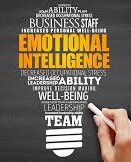Childhood is often seen as a time of growth, joy, and exploration. However, for many, it can also be a period marked by trauma—experiences that can have lasting effects well into adulthood. Childhood trauma, whether in the form of abuse, neglect, or exposure to violence, doesn’t just affect the immediate well-being of a child. It can leave emotional and psychological scars that impact mental health in profound ways as the person matures.
Understanding the long-term effects of childhood trauma on adult mental health is crucial for both individuals who have experienced trauma and mental health professionals working to provide effective treatment. This article explores the types of childhood trauma, how they shape adult mental health, and what can be done to heal and overcome these lasting impacts.
What is Childhood Trauma?
Childhood trauma refers to any experience or event that causes emotional, psychological, or physical harm to a child. This can include:
- Physical or sexual abuse
- Emotional neglect or abuse
- Witnessing domestic violence or substance abuse
- Parental separation, divorce, or abandonment
- Natural disasters or accidents
- Bullying or social rejection
- Death of a loved one or caregiver
Traumatic experiences in childhood often happen when a child is too young to fully process or understand what is happening, which can make the impact even more profound. When these experiences go unaddressed, they can have long-term repercussions on mental and emotional health.
The Connection Between Childhood Trauma and Adult Mental Health
The emotional and psychological effects of childhood trauma can manifest in various ways throughout adulthood. Trauma shapes the brain during critical developmental years, affecting how individuals process emotions, form relationships, and cope with stress. Several key areas of adult mental health can be affected by childhood trauma:
1. Anxiety Disorders
Adults who have experienced childhood trauma often struggle with chronic anxiety. Trauma can trigger an overactive stress response system, making it difficult for individuals to manage even minor stressors without feeling overwhelmed. This hypervigilance can lead to generalized anxiety disorder (GAD), panic attacks, or social anxiety, where the person feels constantly on edge or fearful of potential dangers.
2. Depression
Trauma can create feelings of worthlessness, guilt, and shame in children that persist into adulthood. These negative beliefs about oneself often contribute to the development of depression. Adults who experienced childhood trauma may find it difficult to feel hopeful, maintain motivation, or engage in activities that bring joy. The unresolved pain from early life can lead to feelings of deep sadness or numbness, which are hallmarks of depression.
3. Post-Traumatic Stress Disorder (PTSD)
For some, childhood trauma can lead to post-traumatic stress disorder (PTSD) in adulthood. PTSD is characterized by intrusive memories, flashbacks, nightmares, and emotional numbness related to the traumatic event. Adults with childhood PTSD may struggle with intense fear and anxiety, have trouble trusting others, or avoid certain situations that remind them of their trauma.
4. Attachment Issues and Relationship Difficulties
Childhood trauma, especially neglect or abuse by caregivers, can profoundly impact the way an individual forms relationships in adulthood. Trauma can disrupt the development of secure attachment, leading to issues like fear of abandonment, difficulty trusting others, or an inability to form close, intimate connections. Adults who experienced trauma may find themselves in unhealthy or toxic relationships or struggle with emotional closeness.
5. Substance Abuse and Addiction
Adults with unresolved childhood trauma are at a higher risk of developing substance abuse problems. Drugs and alcohol are often used as coping mechanisms to numb painful emotions or manage symptoms of anxiety and depression. Without healthy ways to process the trauma, individuals may turn to addictive behaviors as a way to escape or avoid their pain.
6. Self-Esteem and Identity Issues
Trauma can severely impact a child’s developing sense of self. Feelings of shame, guilt, or being “different” from others can carry into adulthood, making it difficult for individuals to build a positive self-identity. Adults may struggle with low self-esteem, feelings of inadequacy, or even identity confusion, where they feel uncertain about their role or purpose in life.
The Science Behind Trauma and Brain Development
Trauma affects the brain in profound ways. Research has shown that childhood trauma can alter the brain’s structure and function, particularly in areas responsible for emotion regulation, memory, and decision-making. Key brain regions affected by trauma include:
- Amygdala: The brain’s fear center. Trauma can cause the amygdala to become hyperactive, leading to heightened fear and stress responses in adulthood.
- Hippocampus: Responsible for memory formation. Childhood trauma can impair the hippocampus, leading to difficulty forming new memories or increased likelihood of intrusive memories related to the trauma.
- Prefrontal Cortex: Involved in reasoning and decision-making. Trauma can reduce the functioning of the prefrontal cortex, making it harder for individuals to manage emotions, control impulses, or make rational decisions under stress.
These neurological changes are part of why trauma’s effects can be so enduring, influencing emotional responses and behavior well into adulthood.
How Can Adults Heal from Childhood Trauma?
Although childhood trauma can have long-lasting effects on mental health, healing is possible. Recognizing the impact of trauma and seeking professional help are key steps toward recovery. Here are some strategies that can help individuals heal from childhood trauma:
1. Therapy
Therapy, particularly trauma-focused therapies like Cognitive Behavioral Therapy (CBT) and Eye Movement Desensitization and Reprocessing (EMDR), can help individuals process and reframe traumatic experiences. Therapists trained in trauma recovery provide a safe space for individuals to explore their past and develop healthier coping mechanisms.
2. Building Healthy Relationships
Fostering secure, trusting relationships in adulthood can help counteract the effects of childhood trauma. Whether through friendships, romantic relationships, or supportive family connections, healthy relationships provide emotional security and help rebuild trust.
3. Mindfulness and Stress Management
Mindfulness practices, such as meditation and yoga, can help individuals stay grounded in the present moment and reduce the overactive stress response that trauma can trigger. Learning to manage stress effectively is essential for individuals recovering from childhood trauma.
4. Self-Compassion
Many adults who experienced trauma in childhood struggle with self-criticism and harsh judgment. Developing self-compassion—learning to treat oneself with kindness and understanding—can be a powerful tool in healing. By recognizing that the trauma was not their fault, individuals can start to rebuild their self-esteem and embrace a healthier self-image.
Conclusion
The long-term effects of childhood trauma on adult mental health can be profound, but they are not insurmountable. Through therapy, self-care, and support, individuals can heal and reclaim their mental well-being. It’s important to remember that while childhood trauma can shape us, it does not define us. With the right resources and resilience, a fulfilling and mentally healthy life is entirely possible.

